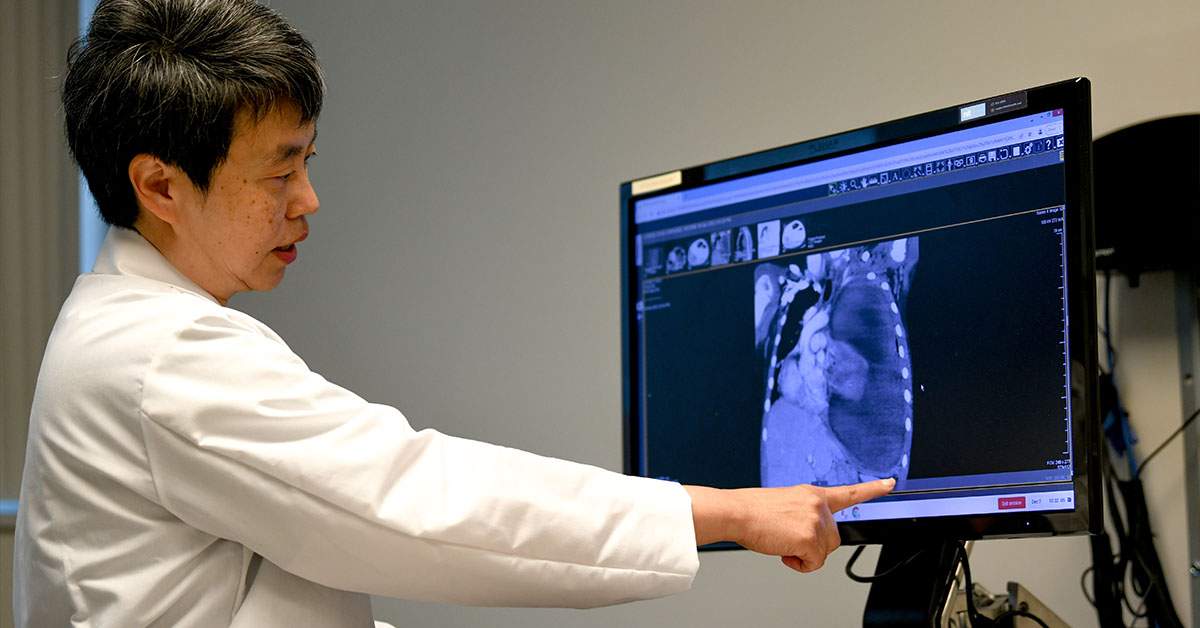New Pulmonology Program Focuses on Rare Lung Diseases in Children
Diseases marked by progressive worsening of respiratory symptoms that do not respond to routine respiratory therapy

Pediatric pulmonologists are focused on diagnosing rare lung diseases, such as interstitial lung disease, through a new program at Joseph M. Sanzari Children’s Hospital. These rare lung diseases are marked by progressive worsening of respiratory symptoms that are unresponsive to routine respiratory therapy. These diseases can be congenital or can be acquired in patients who have autoimmune diseases, such as lupus and rheumatoid arthritis or are suffering from organ rejection following a transplant.
“Although these lung diseases (congenital or acquired) by definition are rare, and the incidence of congenital lung diseases has not increased, we are diagnosing more patients with these life-altering conditions because we are on the lookout for them,” said Rare Lung Disease co-lead Donna Lee, M.D., pediatric pulmonologist. “This program allows us to concentrate our expertise on quicker diagnosis and in many cases effective treatment of these conditions.” Along with Dr. Lee, Gurpreet Phull, M.D., pediatric pulmonologist, co-leads the program.
For congenital diseases, symptoms usually occur soon after birth but can sometimes be delayed with clinical onset in the first few years of life. Acquired lung diseases are usually seen later in life typically associated with an underlying disease process or after an insult to the lung. COVID-19 also has contributed to children developing lung disease.
Rare lung diseases may affect the air sacs, airways, or interstitial lung tissues. These diseases are serious, chronic conditions that affect lung function, causing breathing problems that impact the day-to-day life of a child. Hundreds of rare lung diseases have been identified. Although rare diseases are typically associated with poor prognosis, there are now exciting novel therapies under investigation. Scientific advances are leading to new treatments and even cures for rare lung diseases but first the child must be properly diagnosed. Prompt detection of these rare lung diseases will lead to prompt treatment and will improve outcomes. This is where a specialized center with expertise in these rare and hard to diagnose conditions can make all the difference.
Pulmonologists use a variety of diagnostic methods to identify these rare diseases, including:
- blood tests
- bronchoscopy
- genetic tests
- lung biopsy
- pulmonary function test
Learn more about our advancements in pediatric pulmonology.
